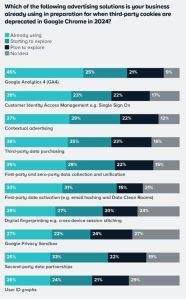— July 13, 2018

kaboompics / Pixabay
You know it, I know it. We’re supposed to blog. Blogging helps with SEO. It leads to backlinks. It fills out your website and provides value to your audience. Heck, I’m pretty sure it’s gluten free and full of freaking antioxidants, too. Blogging is super important. I get it.
But I’m gonna let you in on a secret.
I hate blogging.
I get overwhelmed by the task. I can’t organize my thoughts, I get caught up in the research, and I never know where to start. The whole process makes blogging seem like a way bigger deal than it should be. It’s daunting, knowing I have to churn out content every 10 weeks. I’m busy! Surely, I have more important things to do.
“I’m just swamped, I can’t find the time to blog”, is always there for an excuse. I could get out of blogging, but I don’t. I dig in, and I get it done. Begrudgingly, I never miss a blog. Here’s why.
Show what you know
A blog is the perfect way to show your expertise and share your knowledge with others. Use your blog to both give value to your audience and establish yourself as a thought leader. It’s easy to say you can do something – use your blog to prove it. Go deep on a subject, think critically, and table new opinions or hot takes. The more people see you flex on a subject, the more they’ll trust your abilities as a consultant or collaborator in that domain.
Set an example
If you’re a senior leader at your organization, it’s easy to write off blogging as a low level task. No one will argue when you say, “I have more important things to do.” You probably do. But what sort of example are you setting? What does it say about blogging as a task, and more importantly, your company culture? You’ve stressed the importance of content marketing – shouldn’t you be a proponent of content production?
By being part of the blog schedule, you’re setting an example. You’re showing that you, too, need to stay up-to-date on the industry everyone needs to get their hands dirty. You’re the foreman who comes down from his office and gets on the assembly line. From the top down, everyone needs to keep learning – even you.
When you teach it, you retain it
Sweeping changes to privacy rules happened this year because of General Data Protection Regulation (GDPR). In April, I was like “what the heck is a ‘GDPR’”. In May, I researched GDPR and wrote a blog post explaining how GDPR will affect Canadian marketers. I became Stryve’s resident GDPR expert and could answer any and all of our client’s questions.
There’s the belief that you don’t truly know something until you’re able to teach it. Use blogging as an excuse to become an expert on a topic, and use the blog itself as your classroom.
With these three reasons in mind, I’ve managed to overcome my blog block. That’s not to say I haven’t spent time staring at a blank word document, unsure of where to begin. At Stryve, we approach blogging as a team, so no one is left on an island, banging their head against a wall.
Put a process in place
We have a blog writing schedule where 1 team member is assigned a “blog week” every 8 to 10 weeks. During our Friday team meeting, we announce who’s on blog and who’s on deck, giving everyone two full weeks of prep time. At this point, we brainstorm as a group and toss around possible blog topics. If you’re out of ideas, don’t worry about it – someone’s got you.
Utilize your blog time with a structured approach. Once you have a topic, do your research and make a rough outline. Run it by your team or content editor and revise before jumping into a first draft. From there, it’s rinse and repeat until your draft is ready for publishing.
Get back to writing
If you’re reading this, we might be alike. You, too, may hate dislike blogging. You might be procrastinating or putting off your blog right now! We all have those tasks we’d rather pass off, but we know the benefits outweigh the drawbacks. So vaya con Dios, get out there and blog, you badass blogger, you.
Digital & Social Articles on Business 2 Community
(33)
Report Post






